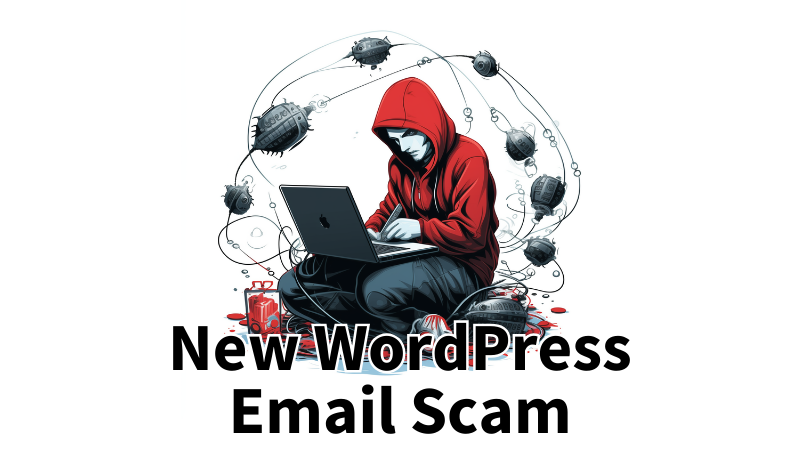The Deceptive Email: A Wolf in Sheep’s Clothing
In the ever-evolving digital landscape, vigilance is key, particularly for those steering the ship of WordPress websites. A recent incident, which came to light on January 5th, 2024, serves as a stark reminder of this. A client reached out to us, seeking help with installing what appeared to be a security plugin, as suggested by an email. However, a closer look revealed a more sinister reality: it was a scam targeting WordPress sites. Let’s dive into the details of this deceptive email and learn how to shield ourselves from such threats.
The Email: A Masterclass in Deception
The email in question sounded an alarm about a so-called vulnerability, dubbed “CVE-2024-46188 Patch”. It implored WordPress site owners to download and install a plugin to fix this supposed security flaw. But here’s the catch: it’s a scam. The email, originating from en.gb-wordpress.org, is not affiliated with the official WordPress team. It’s very similar to the real WordPress subdomain en.gb.wordpress.org. This is a classic case of wolves in sheep’s clothing, preying on the unsuspecting.
The Danger Lurking Behind the Scam
The primary goal of this scam is to gain unauthorised access to WordPress sites. By duping site owners into downloading this bogus plugin, scammers can infiltrate websites, pilfer sensitive data, and potentially engage in other nefarious activities. The stakes are high, and the risk of compromising your site’s security is real, should you fall for this trap.
Recognising the Red Flags
- Suspicious Email Address: The email comes from @news-wordpress.org, a domain that’s not officially linked to WordPress. Remember, legitimate WordPress communications will always originate from a wordpress.org or wordpress.com address. Interestingly, some people have reported receiving similar emails from different addresses like mailserver-wordpress.org, help-wordpress.org, and mailer-wordpress.org.
- Unverified Vulnerability Claim: The mentioned “CVE-2024-46188 Patch” doesn’t exist in official WordPress advisories or recognised cybersecurity sources.
- Urgent Call to Action: Scammers often employ urgent language to push recipients into hasty actions. Authentic security updates from WordPress are never communicated in this high-pressure manner.
Staying Safe: Your Digital Armour
To fortify yourself and your website against such scams:
- Verify Sources: Always cross-check the legitimacy of any security alert by visiting the official WordPress website or reaching out to their support team.
- Regular Updates: Keep your WordPress site, themes, and plugins up-to-date with the official releases available through your WordPress dashboard.
- Use Trusted Plugins: Stick to plugins from the official WordPress plugin repository or from reputable developers.
- Be Cautious with Emails: Approach unsolicited emails with a healthy dose of scepticism, especially those urging immediate action.
In conclusion, the digital world is fraught with threats, but with a keen eye and a cautious approach, you can navigate these treacherous waters safely. Stay informed, stay sceptical, and most importantly, stay safe.
To read more about this scam check out the official WordPress news post here – https://wordpress.org/news/2023/12/alert-wordpress-security-team-impersonation-scams/

